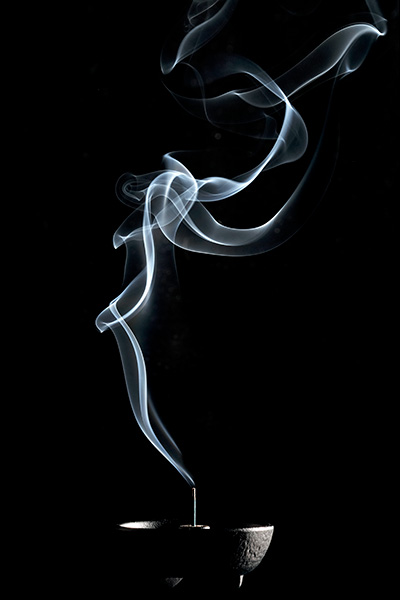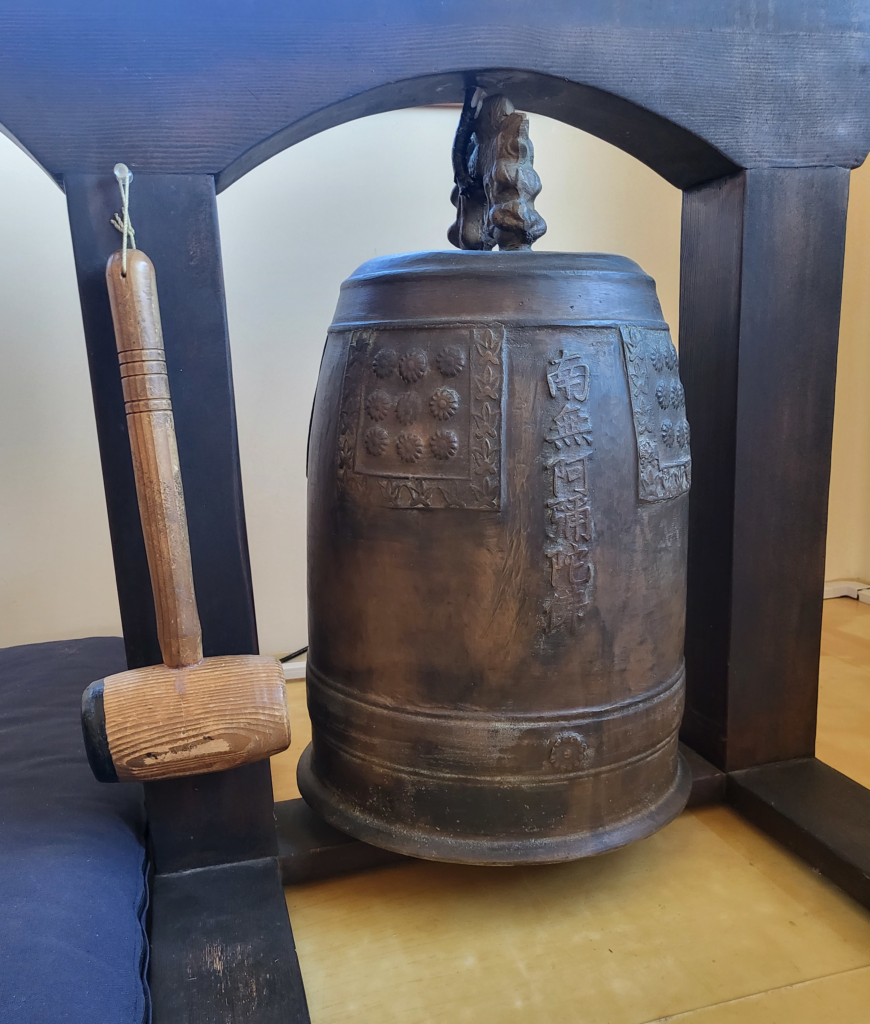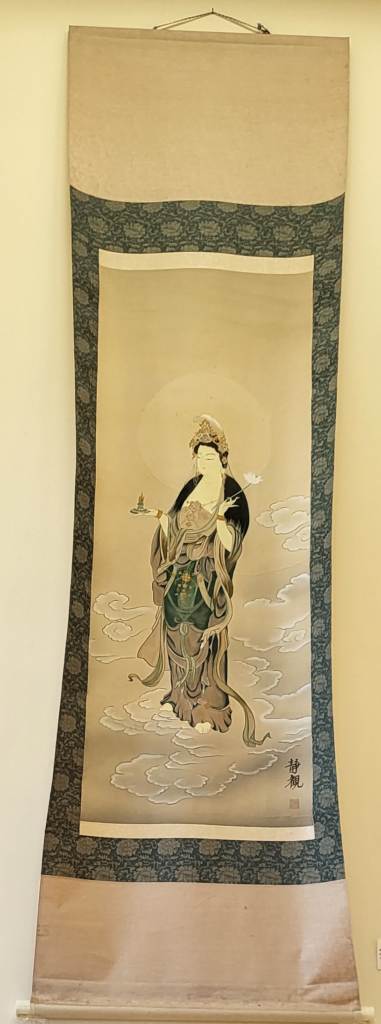
Vows and Chants
Currently, during our typical practice, we recite the Four Great Vows and chant the Evening Bell Chant (as a solo, not a group chant), The Heart Sutra in English, and The Identity of Relative and Absolute. For practice that includes Special Chanting, we recite the Four Great Vows and chant Kwan Seum Bosal and Ji Jang Bosal. The Vows and Chants are shown here so that you can follow them easily.
 The Four Great Vows
The Four Great Vows
Sentient beings are numberless; we vow to awaken as one.
Mistaken views are endless; we vow to cut through them all.
The teachings are infinite; we vow to embody them all.
The Buddha way is inconceivable; we vow to attain it.
 The Evening Bell Chant
The Evening Bell Chant
This is not a group chant. It is chanted only by the person who is ringing the bell.
mun jong-song
bon-ne dan
ji-hye jang
bo-ri saeng
ni-ji ok
chul sam-gye
won song-bul
do jung-saeng
pa ji-ok jin-on
om ga-ra ji-ya sa-ba-ha
om ga-ra ji-ya sa-ba-ha
om ga-ra ji-ya sa-ba-ha
The Heart Sutra in English
The Maha Prajna Paramita Hrdaya Sutra
Avalokitesvara Bodhisattva
when practicing deeply the Prajna Paramita
perceives that all five skandhas are empty
and is saved from all suffering and distress.
Shariputra,
form does not differ from emptiness,
emptiness does not differ from form.
That which is form is emptiness,
that which is emptiness form.
The same is true of feelings,
perceptions, impulses, consciousness.
Shariputra,
all dharmas are marked with emptiness;
they do not appear or disappear,
are not tainted or pure,
do not increase or decrease.
Therefore, in emptiness no form, no feelings,
perceptions, impulses, consciousness.
No eyes, no ears, no nose, no tongue, no body, no mind;
no color, no sound, no smell, no taste, no touch,
no object of mind;
no realm of eyes
and so forth until no realm of mind consciousness.
No ignorance and also no extinction of it,
and so forth until no old age and death
and also no extinction of them.
No suffering, no origination,
no stopping, no path, no cognition,
also no attainment with nothing to attain.
The bodhisattva depends on Prajna Paramita
and the mind is no hindrance;
without any hindrance no fears exist.
Far apart from every mistaken view one dwells in nirvana.
In the three worlds
all buddhas depend on Prajna Paramita
and attain Anuttara Samyak Sambodhi.
Therefore, know that Prajna Paramita
is the great transcendent mantra,
is the great bright mantra,
is the utmost mantra,
is the supreme mantra,
which is able to relieve all suffering
and is true, not false.
So proclaim the Prajna Paramita mantra,
proclaim the mantra which says:
gate, gate, paragate, parasamgate, bodhi svaha
gate, gate, paragate, parasamgate, bodhi svaha
gate, gate, paragate, parasamgate, bodhi svaha.
The Identity of Relative and Absolute
The mind of the Great Sage of India
Is intimately conveyed west and east.
Among human beings are wise ones and fools
In the Way there is no teacher of north and south.
The subtle Source is clear and bright;
The branching streams flow in the dark.
To be attached to things is primordial illusion;
To encounter the absolute is not yet enlightenment.
All spheres, every sense and field
Intermingle even as they shine alone,
Interacting even as they merge,
Yet keeping their places in expressions of their own.
Forms differ primally in shape and character
And sounds in harsh or soothing tones.
The dark makes all words one;
The brightness distinguishes good and bad phrases.
The four elements return to their true nature
As a child to its mother.
Fire is hot, water is wet,
Wind moves and the earth is dense.
Eye and form, ear and sound, nose and smell,
Tongue and taste, the sweet and sour:
Each independent of the other
Like leaves that come from the same root.
And though leaves and root must go back to the Source,
Both root and leaves have their own uses.
Light is also darkness,
But do not move with it as darkness.
Darkness is light;
Do not see it as light.
Light and darkness are not one, not two,
Like the foot before and the foot behind in walking.
Each thing has its own being
Which is not different from its place and function.
The relative fits the absolute
As a box and its lid.
The absolute meets the relative
Like two arrow points that meet in mid-air.
Hearing this, simply perceive the Source,
Make no criterion.
If you do not see the Way,
You do not see it even as you walk on it.
When you walk the Way you draw no nearer,
Progress no farther.
Who fails to see this is mountains and rivers away.
Listen, those who would pierce this subtle matter:
Do not waste your time by night or day.
(Shitou Xiqian; trans. Zen Community of New York)
The Great Dharani
shin-myo jang-gu dae-da-ra-ni
na-mo-ra da-na da-ra ya-ya
na-mak ar-ya ba-ro-gi-je sae-ba-ra-ya
mo-ji sa-da-ba-ya
ma-ha sa-da-ba-ya
ma-ha ga-ro-ni-ga-ya
om sal-ba-ba-ye su da-ra-na
ga-ra-ya da-sa-myong
na-mak-ka-ri-da-ba
i-mam ar-ya ba-ro-gi-je
sae-ba-ra da-ba i-ra-gan-ta
na-mak ha-ri-na-ya ma-bal-ta
i-sa-mi sal-bal-ta sa-da-nam
su-ban a-ye-yom sal-ba bo-da-nam
ba-ba-mar-a mi-su-da-gam da-nya-ta
om a-ro-gye a-ro-ga
ma-ji-ro-ga ji-ga-ran-je
hye-hye-ha-rye ma-ha mo-ji sa-da-ba
sa-ma-ra sa-ma-ra ha-ri-na-ya
gu-ro-gu-ro gal-ma sa-da-ya sa-da-ya
do-ro-do-ro mi-yon-je
ma-ha mi-yon-je da-ra da-ra
da-rin na-rye sae-ba-ra ja-ra-ja-ra
ma-ra-mi-ma-ra a-ma-ra
mol-che-ye hye-hye ro-gye sae-ba-ra
ra-a mi-sa-mi na-sa-ya
na-bye sa-mi sa-mi na-sa-ya
mo-ha ja-ra mi-sa-mi
na-sa-ya ho-ro-ho-ro ma-ra-ho-ro
ha-rye ba na-ma-na-ba
sa-ra sa-ra shi-ri shi-ri
so-ro so-ro mot-cha mot-cha
mo-da-ya mo-da-ya
mae-da-ri-ya ni-ra-gan-ta
ga-ma-sa nal-sa-nam
ba-ra-ha-ra-na-ya
ma-nak-sa-ba-ha
shi-ta-ya sa-ba-ha
ma-ha-shi-ta-ya sa-ba-ha
shi-ta-yu-ye sae-ba-ra-ya sa-ba-ha
ni-ra-gan-ta-ya sa-ba-ha
ba-ra-ha mok-ka shing-ha
mok-ka-ya sa-ba-ha
ba-na-ma ha-ta-ya sa-ba-ha
ja-ga-ra yok-ta-ya sa-ba-ha
sang-ka som-na-nye mo-da-na-ya sa-ba-ha
ma-ha-ra gu-ta da-ra-ya sa-ba-ha
ba-ma-sa gan-ta i-sa-chi che-da
ga-rin-na i-na-ya sa-ba-ha
mya-ga-ra jal-ma ni-ba
sa-na-ya sa-ba-ha na-mo-ra
da-na-da-ra ya-ya na-mak ar-ya
ba-ro gi-je sae-ba-ra-ya
sa-ba-ha
 Kwan Seum Bosal
Kwan Seum Bosal
na-mu bul-ta-bu-jung gwang-nim bop-he
na-mu dal-ma bu-jung gwang-nim bop-he
na-mu sung-ga bu-jung gwang-nim bop-he
na-mu bo-mun shi-hyon wol-lyok hong-shim
dae-ja dae-bi
kwan-se-um bo-sal
kwan-se-um bo-sal…. (repeat)
kwan-se-um bo-sal
myor-op-chang-jin-on
om ma-ro-ru-gye sa-ba-ha
om ma-ro-ru-gye sa-ba-ha
om ma-ro-ru-gye sa-ba-ha
won song-chwi jin-on
om a-mot-ka sal-ba da-ra sa-da-ya shi-bye-hum
om a-mot-ka sal-ba da-ra sa-da-ya shi-bye-hum
om a-mot-ka sal-ba da-ra sa-da-ya shi-bye-hum
bul-sol so-jae gil-sang da-ra-ni
na mu sa man da mot ta-nam a-ba-ra-ji
ha-da-sa sa-na-nam da-nya-ta
om ka-ka ka-hye ka-hye hum-hum a-ba-ra
a-ba-ra ba-ra-a-ba-ra ba-ra a-ba-ra
ji-tta ji-tta ji-ri ji-ri ppa-da ppa-da
son-ji-ga shi-ri-e sa-ba-ha
na-mu sa-man-da mot-ta-nam a-ba-ra-ji
ha-da-sa sa-na-nam da-nya-ta
om ka-ka ka-hye ka-he hum-hum a-ba-ra
a-ba-ra bara abara bara abara
ji-tta ji-tta ji-ri ji-ri ppa-da ppa-da
son-ji ga-shi-ri-e sa-ba-ha
bo gwol jin-on
om ho-ro ho-ro sa-ya mot-kye sa-ba-ha
om ho-ro ho-ro sa-ya mot-kye sa-ba-ha
om ho-ro ho-ro sa-ya mot-kye sa-ba-ha
bo-ho-hyang jin-on
om sam-ma-ra sam-ma-ra mi-ma-ra
ja-ra-ma ja-go-ra ba-ra hum
om sam-ma-ra sam-ma-ra mi-ma-ra
ja-ra-ma ja-go-ra ba-ra-hum
om sam-ma-ra sam-ma-ra mi-ma-ra
ja-ra-ma ja-go-ra ba-ra-hum
chal-chin shim-nyon ga-su-ji
dae-he jung-su ka-um jin
ho-gong ga-ryang pung ga-gye
mu-nung jin-sol
bul gong-dok
